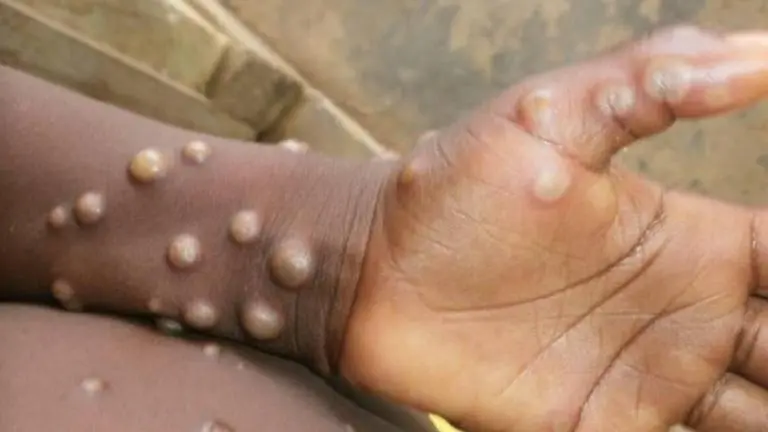Updated 15 July 2022 at 19:59 IST
Monkeypox: WHO official says risk 'moderate' as India reports its first case
WHO is supporting countries to assess the risks from Monkeypox and enhancing capacities to prepare and respond to any multi-country outbreak.
- India News
- 3 min read

WHO is supporting countries to assess the risks of Monkeypox and enhance capacities to prepare and respond to the multi-country outbreak, said World Health Organisation's (WHO) Regional Director for South-East Asia, Dr Khetrapal Singh. Notably, India recorded its first case of Monkeypox in a 35-year-old man, who came from the United Arab Emirates (UAE) last week. It is pertinent to mention that Monkeypox, which has been endemic to just African countries, has spread its web across 60 countries, with three deaths and over 6000 cases registered since the beginning of 2022.
WHO has been supporting Member countries in the Region to assess the risk for #monkeypox and strengthen their capacities to prepare and respond to the evolving multi-country outbreak: Dr Poonam Khetrapal Singh, Regional Director, WHO South-East Asia.
— ANI (@ANI) July 15, 2022
Limited testing capacity for Monkeypox in South East Asia region
“The Region has been on alert for monkeypox. Countries have been taking measures to rapidly detect and take appropriate measures to prevent the spread of monkeypox,” said Dr Singh. WHO has been supporting countries to fight multi-country outbreaks by scaling up capacities.
Although the threat attributed to the disease in the region by WHO as ‘moderate’, in view of the less number of testing capacities in the South East Asia region for Monkeypox, the organisation has coordinated with the following laboratories to serve as referrals - National Institute of Virology, India; Victorian Infectious Diseases Reference Laboratory, Australia; National Institute of Health, Department of Medical Sciences, Thailand; and Faculty of Medicine, Chulalongkorn University, Thailand.
Low population immunity against pox virus infection
The emergency committee of WHO convened a meeting on June 23, 2022 to seek expert advice on whether the Monkeypox outbreak was a public health emergency of international concern. Looking at the low population immunity against the pox virus infection and the risk of sustained infections over a wider population, the committee recommended intense response to put brakes on the spread of the outbreak.
Advertisement
As a result, orienting clinicians in the public and private sectors to identify and treat the infections of Monkeypox are among the key priorities. Moreover, countries should also act in unison to fight Monkeypox, “Monkeypox requires collective attention and coordinated action to stop its further spread. In addition to using public health measures and ensuring health tools are available to at-risk populations and shared fairly, it is important to work with communities to ensure that people who are most at risk, have the information and support they need to protect themselves and others,” the Regional Director said.
Monkeypox disease
The infection of Monkeypox is transmitted from animals suffering from the disease to humans via indirect or direct contact. Human-to-human transmission can happen through direct contact through lesions, infected skin including face to face, skin to skin and respiratory droplets.
Advertisement
It has been found in the countries with the highest concentration of Monkeypox cases, the infections have been transmitted via direct contact. The virus can also be transmitted through contaminated materials such as linens, bedding, electronics, clothing, that have infectious skin particles.
(Image: WHO)
Published By : Abhishek Raval
Published On: 15 July 2022 at 19:59 IST
